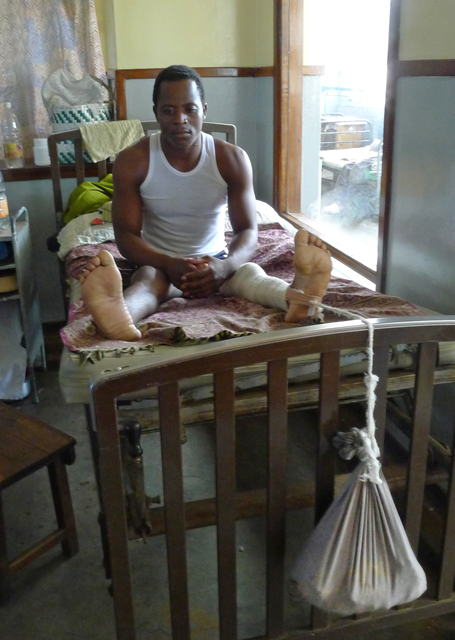Capacity building in postgraduate surgical training and research in Malawi
In Malawi there is only 1 Malawian surgeon per 1, 75 million people, and only 1 female surgeon in the entire Malawi.

Main content
An estimated 5, 8 million people die of injuries each year, 32 % more than the fatalities that result from malaria, tuberculosis and HIV/AIDS combined. Over 90 % of deaths due to injuries occur in low- and middle income countries (LMICs). For every patients that dies as a result of injuries, many more survive with permanent disability. In young people between the ages of 10 and 24 years, 97 % of all deaths occur in LMICs. Injuries accounting for more than 40 % deaths and road traffic accidents are the most frequent cause.
Training surgeons in Malawi: Traffic accidents - huge burden on the health care system
There is a huge need for human resources in the health sector in Malawi. It is estimated that there is only 1 surgeon per million people in Africa South of Sahara region. In Malawi there is only 1 Malawian surgeon per 1, 75 million people, and only 1 female surgeon in the entire Malawi. 92 % of the established positions for Malawian surgeons are vacant, despite very modest number of positions.
There is a low number of surgical trainees in Malawi. There is a lack of trainers and mentors in-country to correct this. In addition, there is a underfunding of public health system and the training environment is not adequate. Hence, there is a huge unmet need for surgeons in Sub Saharan Africa, including Malawi.
The objectives of the project are
- Increased surgical capacity at national level
- Strengthen and increase national and regional postgraduate surgical training capacity through locally relevant Masters, PhDs and COSECSA Fellowship training programmes to meet national and regional needs
- Strengthen the quality of postgraduate education and research capacity in surgery
- Increase and strengthen academic staff at COM
- Regional/International collaboration in education and research strengthened
- Appropriate infrastructure & equipment to ensure sustainable capacity to educate and research
More on the NORHED webpage (external link).
